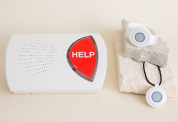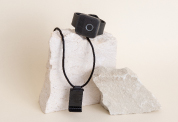5 Ways to Avoid Helicopter Behavior with Your Senior Parent
June 26, 2018
They raise you, loved you, and kept you safe. Now, your parent is older, more at-risk for falls and elder scams, and showing signs that concern you and warrant your involvement in daily decision-making. But is it possible you have gone too far?
“Helicopter parenting” is not a new term. It refers to the unnecessary and often damaging hovering that parents can do when they don’t trust their kids to stay safe and healthy without constant interference. The term has lately been modified to describe the similar behaviors displayed by children of aging parents, as a new generation navigates the tricky waters of how to give older generations the perfect blend of security and freedom. As 10,000 baby boomers turn age 65 each day, hundreds of thousands of children each year will be faced with this new challenge – the challenge to avoid being “helicopter children.”
Senior loved ones may feel stifled by the attention that their children give them when it comes to matters of money, health and even driving. When is all the care and consideration too much? Here are a few ways to keep a healthy distance from your aging parent while still maintaining an interest in their well-being.
1. Leave decision-making to the parent
If your senior loved one is still cognitively healthy, there is no reason to take over their daily decisions. Children of parents with dementia or Alzheimer’s will have some especially difficult choices to make here, but – in most cases – even the occasionally forgetful parent has enough mental capacity to keep tabs on their financial and medical issues. The best thing you can do (if you are concerned about the choices they are making) is to keep them fully informed of the rewards and risks.
Remember that older adults respect established experts as much – if not more – than we do. Rather than sharing an article you found on Facebook, look for studies written by doctors or a statement from your state attorney general to help them avoid a potentially dangerous decision. In the end, however, it’s theirs to make as long as they are capable.
2. Enlist a neutral third-party
When it comes time to tackle difficult subjects, such as whether it’s safe to keep driving, get a professional to help moderate and give advice if needed. A geriatric specialist, for example, is trained to handle the common issues that seniors experience while maintaining the precious client-patient privilege that puts your parent as #1. If you suspect they need new treatment or to cut-back on common activities, set up a time to chat together about the concerns. In the end, unless it’s medically-necessary, most doctors won’t restrict movement or privileges unless it’s especially harmful, however. (Having the concerns documented is still a good idea.)
3. Embrace technology
While many older loved ones may resist the introduction of tech tools into the home, they seem to warm up when they realize that it can help them keep their independence. From home security systems to upgraded smoke alarms, some of the most user-friendly consumer products are designed to help with the plan to age in place. Explain the benefit of any new product, such as a life alert system, along with how it can provide freedom. Try something like this: “I know this fall-alert bracelet is hard to get used to, but it’s important to keep you safe in the home that you and Dad shared together. Most nursing home admissions happen after a dangerous fall, and I don’t want you to end up there.”
4. Don’t snoop
Ask permission to access security camera footage. Don’t read emails without asking. Mail is still theirs to be opened. If you suspect a communication needs further investigation, be open about it. Refer them to real-life stories that apply to their situation. “Gina’s mom got a fake letter claiming to be from the VA. Did you receive anything lately that could be this same scam?” Some older adults may feel relieved not to have to decipher confusing emails or hard-to-hear voicemails, but the choice to share these should be theirs, alone. Always get their OK first.
5. Pick Your Battles
When we start to become involved in the daily care of our older parents, it can be hard to know just where to stop. The fact is, most senior loved ones can still handle most things just fine – even if it’s not exactly the way you would do it (or even the way they would have done it years ago.) Unless the practice is dangerous or could cause long-term harmful effects, there’s nothing wrong with letting them eat a pizza for breakfast (assuming they show no signs of malnutrition) or to wear their pajamas during the day (if the clothes are clean).
Getting older affords us certain luxuries, and they include doing what we want – when we want! Matters of hygiene, medication, or especially harmful dietary choices should be addressed and taken to a neutral 3rd-party if unresolved. For the most part, however, these idiosyncrasies are just choices that will need to be accepted and are part of being an independent adult.
Help Them Help Themselves
One of the best ways to make sure you’re not overstepping into your loved one’s personal life is to equip them with every possible tool to continue thriving into old age. Programs like the National Council on Aging’s (NCOA) Aging Mastery Programs are designed to guide your senior loved one through all the changes they will go through in their Golden Years. Topics such as health, finance, relationships, personal growth, and community involvement are addressed in a supportive environment for adults 65+ at participating centers nationwide.
With seniors living longer and longer, it’s important to get a handle on the appropriate role for children acting as caregivers. While the time may come when parents will need much more involvement, the change is usually gradual and is significantly nuanced. If in doubt, ask. Communication is key when navigating these new waters with our loved ones. Asking questions and listening both display love and respect, as well as ensure that wishes can be respected while the best kind of care is given.
We thought you might also like:
How to Create a Family Care Plan for Your Senior Loved One
How Mesothelioma Impacts Seniors
Living With Osteoporosis: 5 Tips to Help You Stay Safe & Independent











